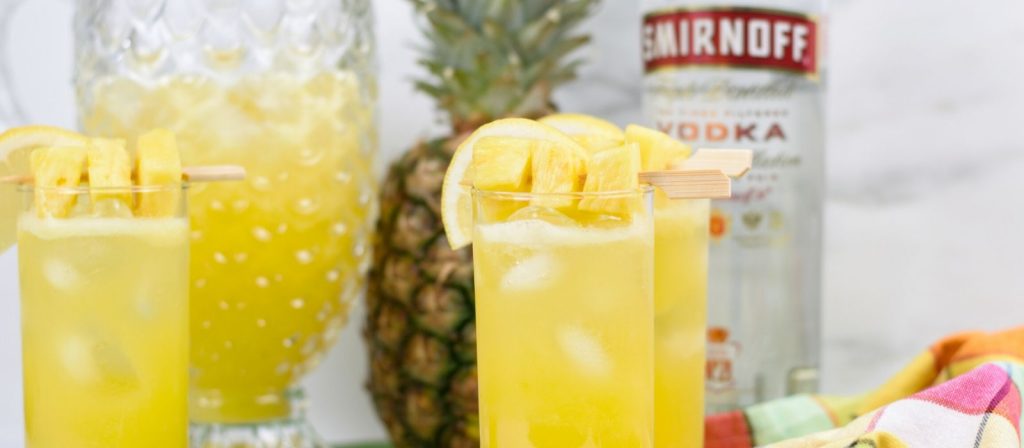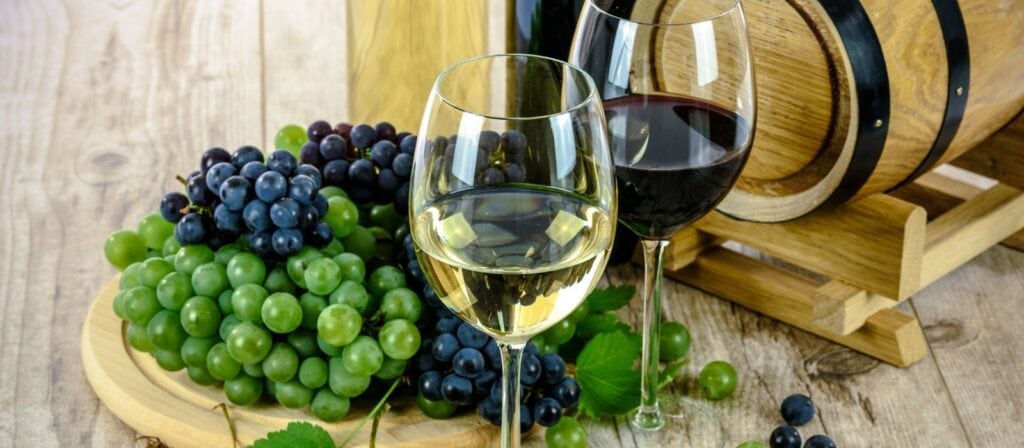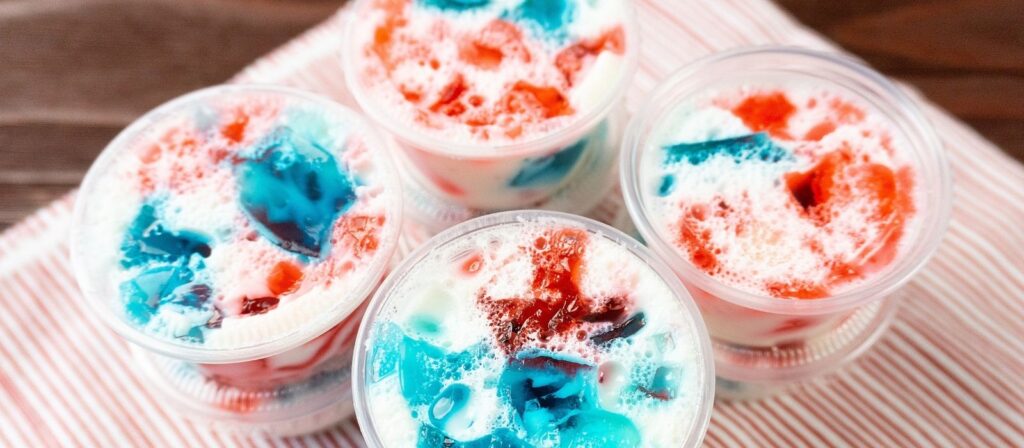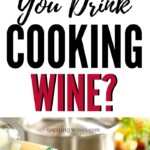Even if we don’t want to admit it we’ve all side eyed the bottle of cooking wine. It’s cheap. It’s convenient. It might already be in your kitchen. So that leaves just one question… Can you drink cooking wine?
Before you stock up on cooking wine at your next grocery store trip it’s best to learn all about what makes cooking wine different from regular drinking wine.
What is Cooking Wine?
Alright, folks, let’s begin by getting acquainted with what cooking wine actually is. Cooking wine is specially made for cooking purposes, hence the name. It contains salt and other additives that enhance flavors in dishes. However, unlike regular drinking wine, it’s not meant to be consumed straight from the bottle.
But hey, we’re all curious beings, right? So, let’s explore further!
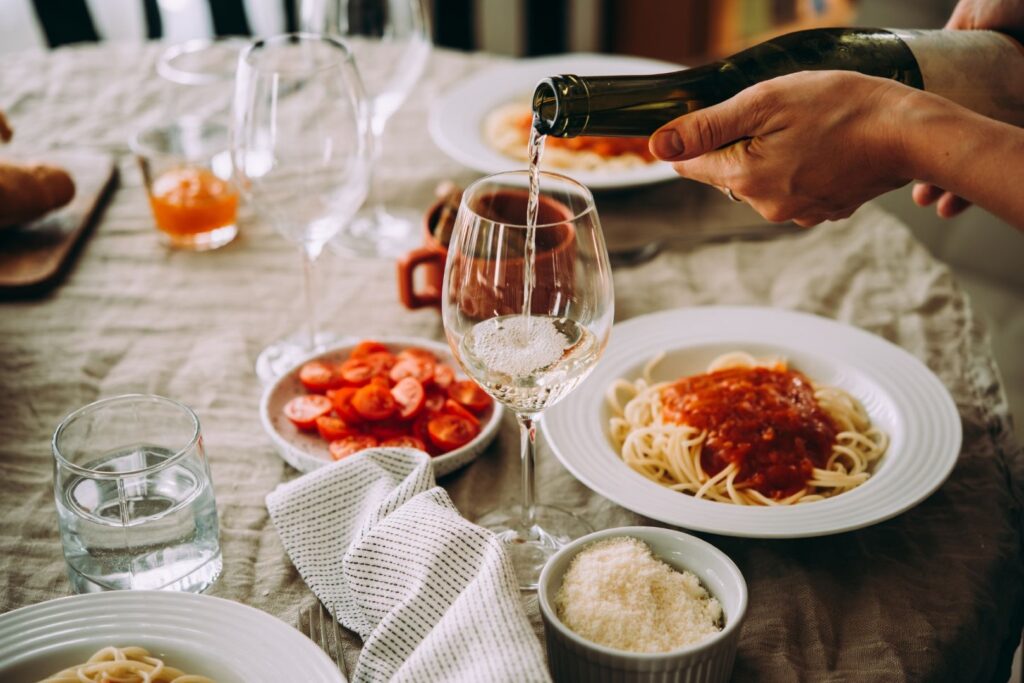
Can You Drink Cooking Wine?
The answer is yes, technically you can drink cooking wine. But the real question here should be “should you drink cooking wine?”. Which is a no. Definitely not.
Before you get all upset with me dashing your chances to enjoy that bottle of cooking wine if you’re out of drinking wine or ruining your “one for you [the dish], one for me [a sip]” approach to cooking with wine let me explain why you shouldn’t drink cooking wine.
Should You Drink Cooking Wine?
Now, picture this: you’re standing in the kitchen, preparing a delicious meal, and suddenly that beautiful bottle of cooking wine catches your eye. You start contemplating if taking a tiny sip would do any harm. Well, dear reader, we advise against it! Drinking cooking wine isn’t recommended due to its high sodium content and added preservatives.
Trust me, it won’t be the most pleasant experience – even if you’re a total wine drinking amateur.
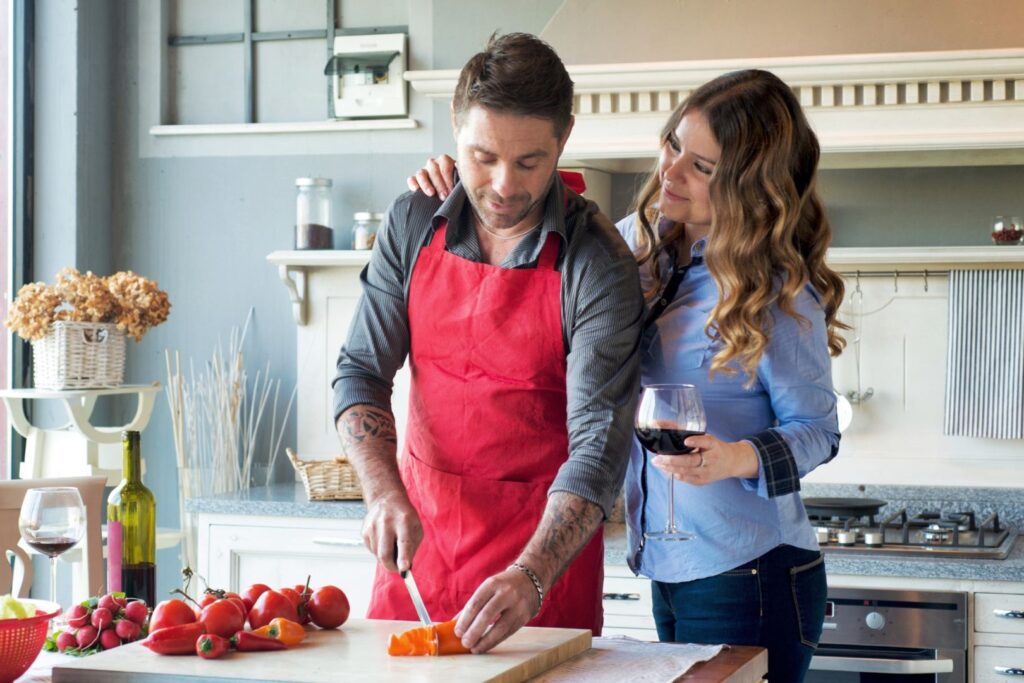
High Sodium Levels
When it comes to cooking wine, it’s important to note that it contains a high amount of sodium. Drinking it straight from the bottle can result in overwhelming saltiness, leaving you feeling like you just licked a slug (not that we’d know what that’s like…). Too much sodium can also lead to dehydration and, well, nobody wants to hang out with a dried-up grape.
How much sodium, you ask? Well your average glass of wine is pretty low sodium, sitting around 6-8mg or so. Cooking wine, on the other hand, has about 190mg of sodium per 30ml (2 tablespoons). That means a 5oz glass of cooking wine would have over 900mg of sodium!
Not only is it gross, but also terrible for you.
Added Preservatives
We love a good processed treat every now and then, but preservatives aren’t meant to be consumed in large quantities. Ever wonder why cooking wine lasts so long anyway? Yep, it’s what they add into the bottle to keep it fresh.
While they’re definitely not harmful, these preservatives can affect people who are sensitive to them – especially in larger quantities. Remember, when you cook with wine you aren’t really consuming that much.
High ABV
Your standard, unfortified wine averages out to be about 12% ABV. That means for every sip of wine, 12% of the liquid is alcohol. Cooking wine with alcohol, on the other hand, is typically 16% ABV. That’s a lot!
Now I know what you’re thinking: “yay, boozier wine!”. It’s true, but it’s also terrible for you. If you want boozier wine, we have options (so keep reading).
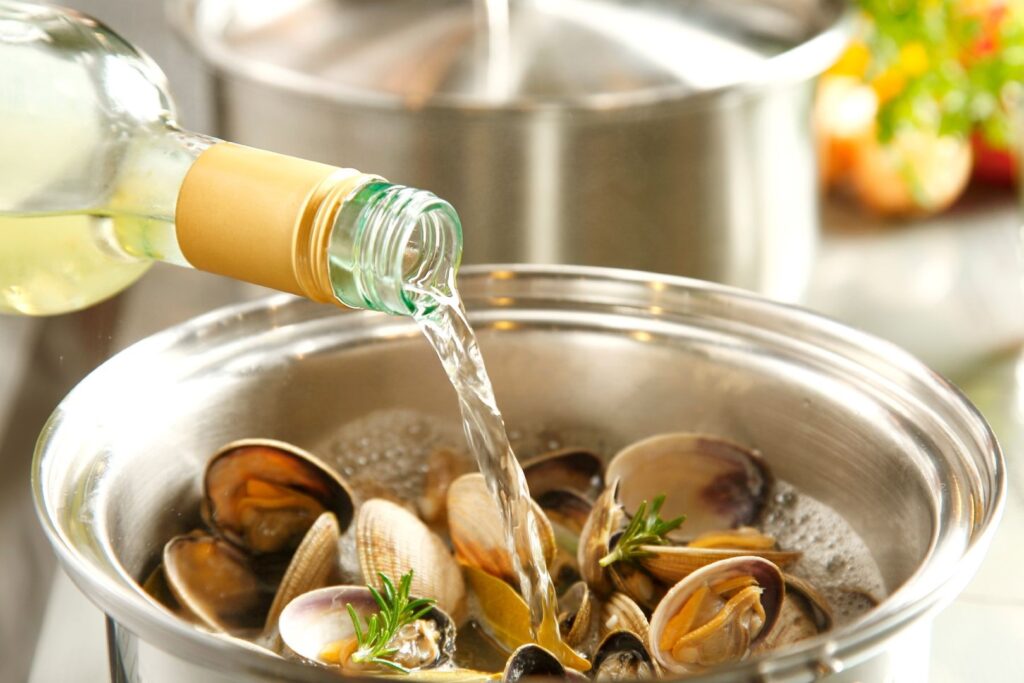
Terrible Taste
Besides the salty taste, cooking wine is also a lot less sweet than most wines. There’s a reason it’s cheap and made for cooking! I’m not saying you should drink cooking wine, but if you’ve ever tried a sip you already know what I’m talking about here.
If you want to enjoy a glass, or even a sip of wine, cooking wine is not going to do it for you.
You (Maybe) Shouldn’t Cook With Cooking Wine Anyway
As someone who loves to cook I’m actually completely against using cooking wine in the first place. The quality of your wine, just like any other ingredient, will affect the taste of the food.
Besides the fact that it doesn’t add as robust flavour as high quality drinking wine, the reasons why you shouldn’t drink it are the exact reasons you shouldn’t cook with it: too much sodium and preservatives. Some do disagree with this and enjoy the taste that you get from the extra sodium, it all comes down to preference.
The best part about cooking with regular wine is you’ll have an excuse to finish off the bottle! Make sure you cook with the same wines you enjoy drinking.
In my opinion, the people who cook with cooking wine aren’t regular wine drinkers. Since cooking wine lasts so long on the shelf it’s easy to keep on hand for recipes when you normally wouldn’t a) have a bottle on hand and b) want to open a bottle you won’t finish.

Safe to Drink Alternatives to Cooking Wine
If you’re new to wine drinking or cooking with wine you may be feeling a bit lost trying to figure out what wines to keep on hand for cooking. Here’s some ideas to elevate your culinary creations to the next level:
- Higher ABV wine: fortified wines like brandy (port, sherry, and vermouth) usually have 17-20% ABV. The alcohol will cook off in your recipes and is great for sipping!
- Cheap wine for cooking and drinking: maybe you’re looking at the price point of cooking wine and going, hmm… Stop! There are other great, cheap wines out there. My go to is Barefoot brand wines if you want affordable and pretty good.
- Non-alcoholic wine: you can cook with it and drink it without worrying about alcohol content.
Tip: Want to try some new wines? Consider subscribing to a wine club!
What Type of Wine is Best For Cooking With?
Cooking wines are usually dry red or white wine, depending on what your recipe calls for.
If you need red wine, choose a Merlot, Pinot Grigio, Malbec, Cabernet Sauvignon, or Pinot Noir. For white wine in cooking, opt for Riesling, Sauvignon blanc, or Chardonnay.
Try experimenting with your favorite wines and some new brands in your cooking to see what tastes good!
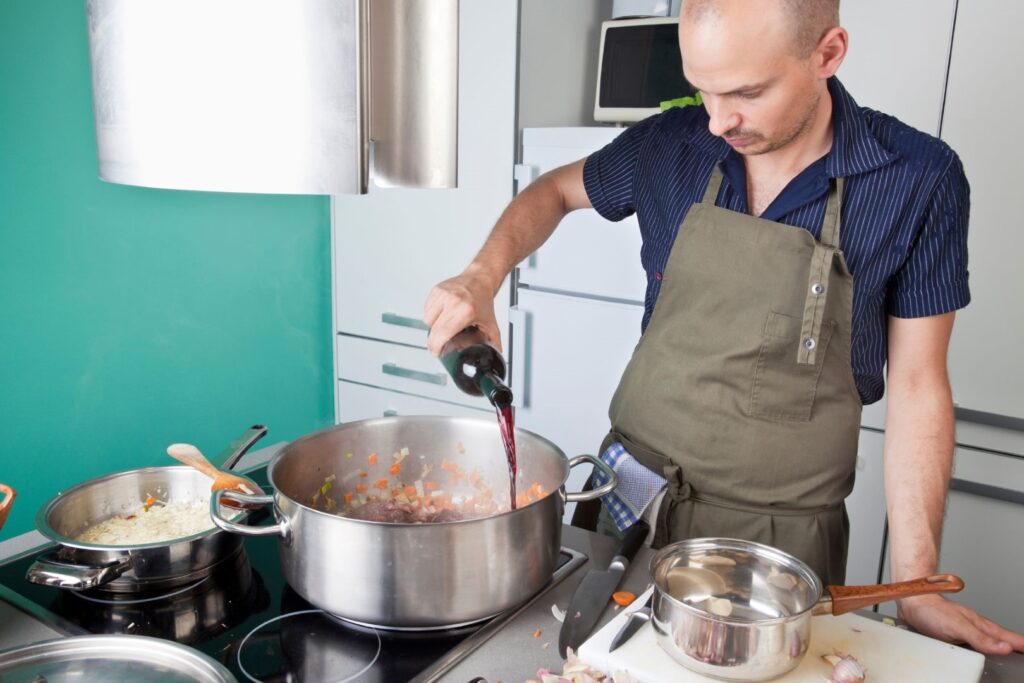
FAQs About Drinking Cooking Wine
So there you have it. In summary, the answer to “can you drink cooking wine is”: technically yes, but don’t.

